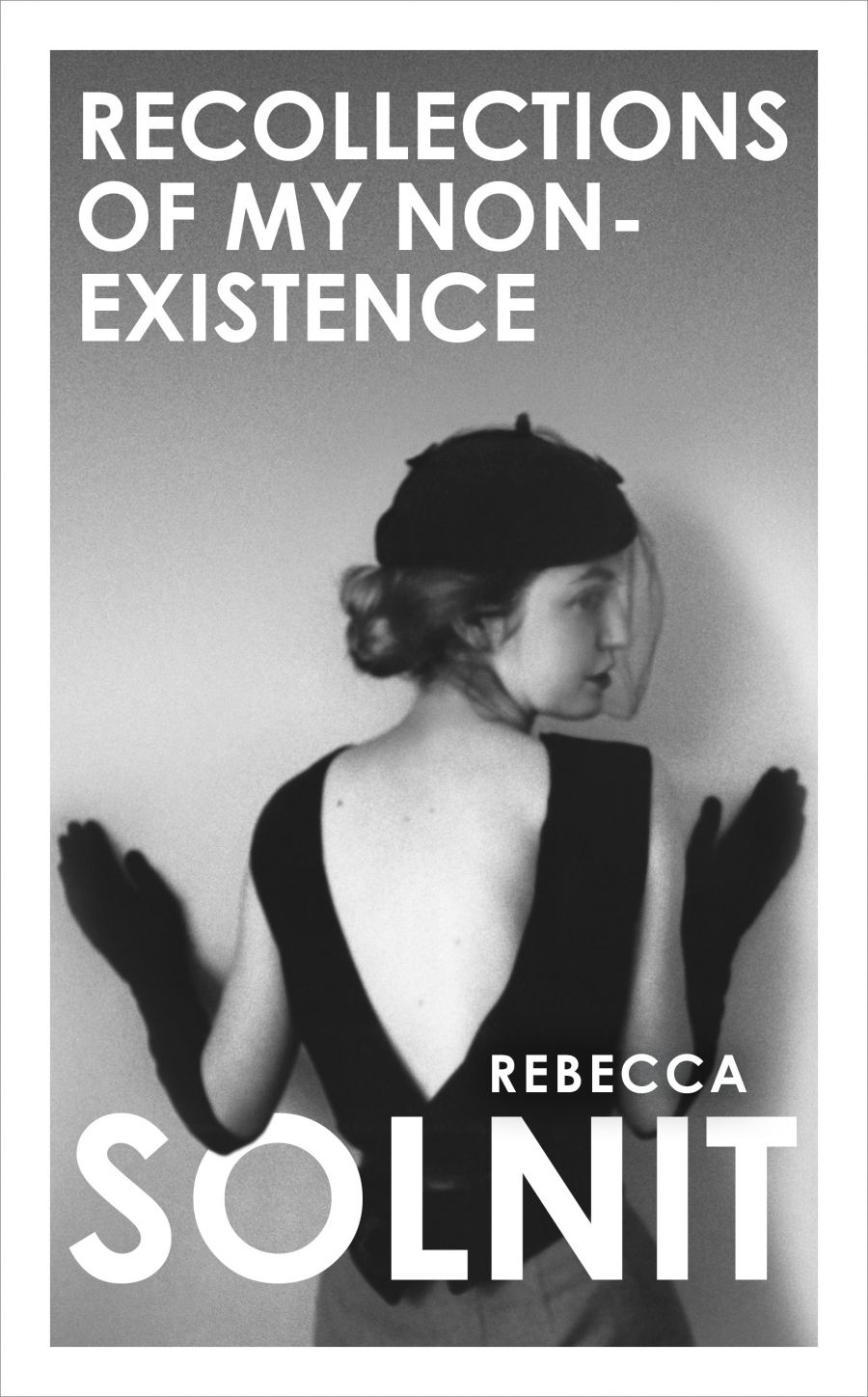
- Free Article: No
- Contents Category: Memoir
- Review Article: Yes
- Custom Highlight Text:
Who better to shepherd us through a once-in-a-century pandemic than Rebecca Solnit? The prolific essayist, activist, and critic has long acted as a lodestar for progressives to follow in times of despair, providing encouragement to find Hope in the Dark (2004), as she did in a collection of essays after the beginning of the Iraq War, and demonstrating how human ingenuity can shine through in the wake of a disaster like Hurricane Katrina in A Paradise Built in Hell (2009).
- Featured Image (400px * 250px):

- Book 1 Title: Recollections of My Non-Existence
- Book 1 Biblio: Granta, $34.99 hb, 244 pp
Recollections of My Non-Existence covers the years when Solnit was ‘trying to disappear and to appear, trying to be safe and to be someone’. In January 1981 she moved into a studio apartment, the room of one’s own she needed to become a writer – ‘a home in which to metamorphose’ where she lived for twenty-five years. Now, nearly four decades later, she writes, ‘it seems time to tell what it meant to me to grow up in a society in which many preferred people like me to be dead or silent and how I got a voice and how it eventually came time to use that voice’.
That voice has been one that has offered women rigorous definitions of the shifting phenomena so many can sense happening but cannot quite put their fingers on. We were all tired of being patronised by men who knew less about a subject than we did before 2008, but that did not stop us from letting out a collective cry of recognition when we read the viral essay ‘Men Explain Things to Me’ (later the title of a 2014 collection). Because of that piece, we were given the term ‘mansplaining’ – inspired but not coined by Solnit – to use when we encountered it in the wild.
In the same way, Recollections of My Non-Existence confirms the suspicion that women are harmed by the act of existing in a fundamentally sexist milieu, especially when we are young, and that we do not have to personally experience the worst violence to be inexorably changed by it.
Feminists have long talked, as Solnit does here, about violence against women existing on a spectrum – one that begins at discrimination and ends at femicide. But there has been a reluctance to explore the less horrific acts that nonetheless preoccupy, exhaust, and harm us because of a perception that certain victims haven’t had it as bad as others.
As Solnit points out, the problem with the pervasiveness of gender violence, in the 1980s as today, is that we have to change our behaviour in fear of it, even if we don’t experience it ourselves. ‘It gets you even if it doesn’t get you.’ This is especially vital in a post-#MeToo environment in which women are accused of conflating acts of verbal harassment and unwanted touching with rape or physical violence – often because the men who perpetrate these things are not as monstrous as Harvey Weinstein, which rather than merely setting the bar low seems to locate it somewhere below the Earth’s crust.
The women at the extreme end of that spectrum cannot speak because they have been killed on the basis of their gender. Solnit makes a convincing case that the rest of us should all be able to speak and write about our experiences at other points along the continuum in the hope that it will change the culture that enables it to exist in the first place. ‘Silencing can be conversational or it can be premeditated murder.’
The downside of Solnit’s gift for naming quasi-universal phenomena is that at times her insights can feel obvious, her metaphors clunky. Though she is a gifted polemicist, polemic and memoir don’t always sit well together. In a passage comparing gender violence to a war in which a man can treat a woman as a ‘subject nation’, she writes that she tried to ‘survive all that by being an unnoticeable nation, a shrinking nation, a stealth nation’. It may be possible for a nation to shrink, but it is extraordinarily difficult for one to pass unnoticed, or to somehow operate in stealth mode.
If the analogies do not always land, Solnit is generous in spirit – it is genuinely touching when she describes the ‘pinnacle’ of her career as the moment when a young woman ‘burst into a spontaneous jig at the sight of me’ at a book festival. Elsewhere, an anecdote about upsetting the archetypal ‘Midcentury Misogynist’ William S. Burroughs at his own party by dressing as a ballerina and posing for photos with him is laugh-out-loud funny and makes the reader want to see more of her wit throughout.
At its best, Recollections of My Non-Existence pinpoints the simultaneous feelings of menace and promise we have during those excruciating yet exhilarating years of young womanhood. The menace is that you might get beaten or assaulted, raped or murdered. The promise is that you might become Rebecca Solnit, and that when young women see you they will dance a spontaneous jig.


Comments powered by CComment